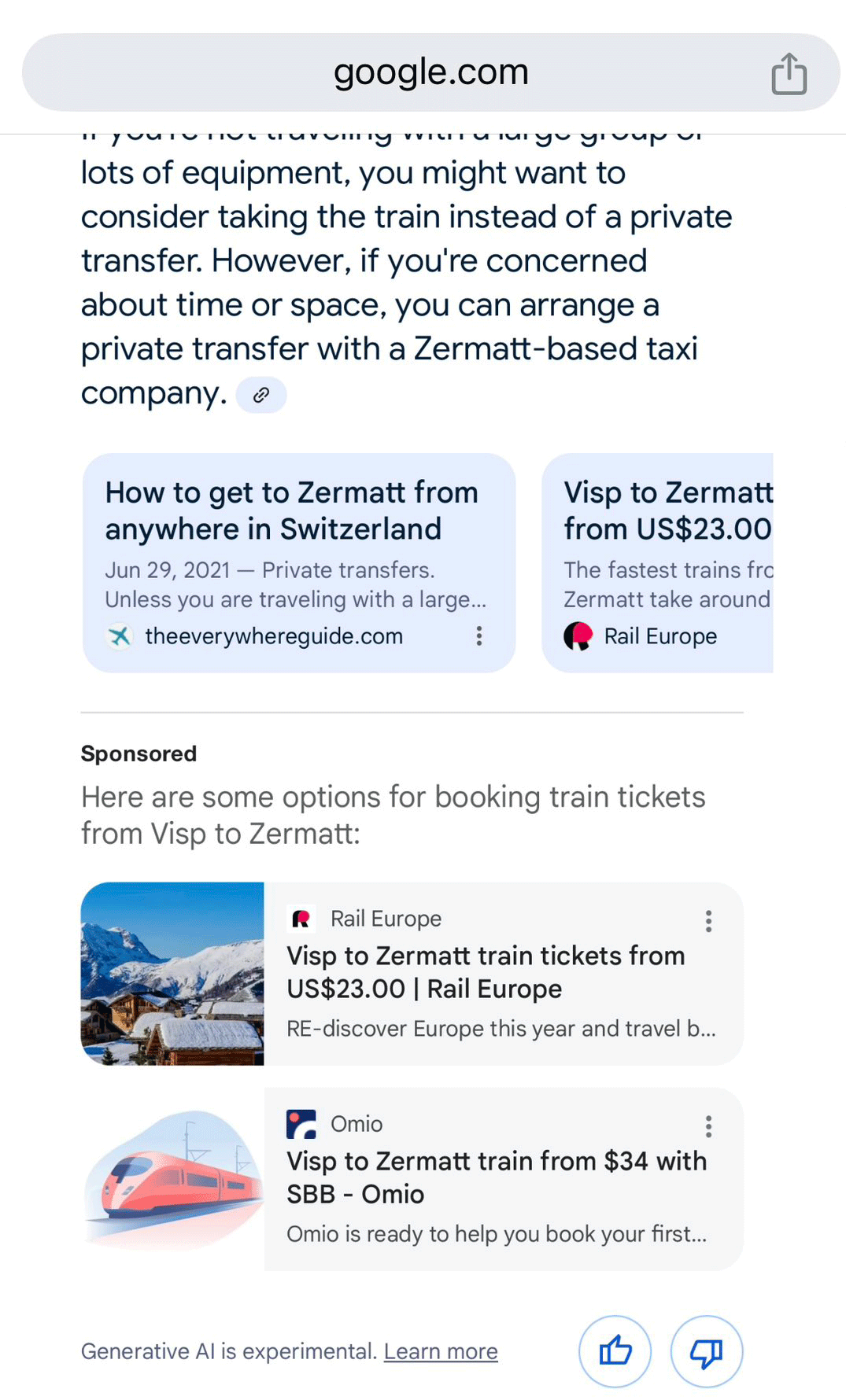Technical SEO
Winners and Losers from Google’s Site Reputation Abuse Policy Update
Google has updated its site reputation abuse policy to include third-party content managed by the site owner.
What is site reputation abuse?
Site reputation abuse is the practice of publishing third-party pages on a site in an attempt to abuse search rankings by taking advantage of the host site's ranking signals. - Google Search Central
This change targets third-party content that exploits site authority signals, even if there’s oversight or involvement from the host. The policy encourages sites to align their content closely with their main focus, discouraging opportunistic expansions into unrelated topics.
In the example above, you can see steady growth over the last 2 years for the subfolder www.independent.co.uk/advisor until a sudden traffic drop of 56% from the 19th of November:
Who’s Losing?
Aleyda Solis did a handy breakdown of winners and losers over at SEOFOMO:
Forbes Advisor: Forbes saw sharp drops in keywords related to financial advice, including “CD rates” and “insurance.” Sites like Nerdwallet, Bankrate, and Investopedia are now capturing this traffic.
Independent Advisor (UK): Focused on insurance, broadband, and VPN reviews, this section dropped for terms like “car insurance” and “free VPN.” UK-specific sites like Compare the Market and Uswitch are gaining ground.
The Sun Shopping (UK): Lost rankings for terms such as “best air fryer” and “dehumidifier UK.” Retailers like Amazon and Boots are now attracting the traffic.
Who’s Winning?
Specialised Sites: Sites deeply focused on niche topics, such as Nerdwallet, Bankrate, and MoneySuperMarket, are picking up the displaced traffic. Their authority within specific industries makes them resilient to policy shifts.
Retailers and Brands: Platforms like Amazon, Best Buy, and Ugg, as well as official brand sites, are benefitting from the decline of review-based publishers.
User-Generated Content Platforms: Reddit has emerged as a key player, ranking for various product and financial keywords.
💡Takeaway: for now, enforcement of violations is manual, but Google plans to automate it in the future. Publications may need to separate unrelated content into independent properties to maintain authority in their original niches.
This policy underscores the importance of maintaining focus and avoiding diluted authority in search rankings. Publishers relying on review content across diverse topics must adapt or face continued declines.
Ecommerce SEO
Shopify Attracts Bigger Brands
Shopify’s push into enterprise e-commerce is picking up speed. The platform added 16 big-name brands in Q3 2024, including Reebok, Off-White, Vera Bradley, and Beautycounter. This helped boost Shopify’s revenue by 26% to $2.16 billion.
A key driver? Modular components that allow brands to integrate features like Shop Pay. Shopify’s transparent pricing is also pulling enterprise clients away from competitors like Salesforce.
Shopify President Harley Finkelstein described enterprise growth as a “long-term opportunity,” with brands like Victoria’s Secret set to adopt Shop Pay soon.
🔗 Find out more about migrating to Shopify
Clickthrough Rates: Q3 2024 Insights
Click through rates (CTR) on Google search are shifting, with some industries gaining traffic while others lose out, as this report from Advanced Web Ranking shows.
The report calculated the CTR averages for each position for Q3 2024 (July-September interval) and compared them against the ones retrieved for Q2 2024 (June-April). The data set is international and comprises all the available markets such as the US, UK, etc.

💡Takeaway: These shifts in CTR can influence your website's traffic, making it crucial to keep a close eye on your sector’s CTR trends. Comparing your site's performance to these industry benchmarks above can reveal areas where click rates can be optimised.
Analysing the distinct layout of search engine result pages (SERP) for individual keywords is critical to understanding and enhancing your organic CTR for specific features.
SEO Meets UX: Lessons from Google
Google’s latest podcast dives into my favourite topic - the relationship between SEO and user experience. Product manager Rio Ichikawa joined Lizzi and John to discuss how optimising UX boosts conversions. Key takeaways include:
Heatmaps are a valuable tool to identify where users click and how they navigate.
Overusing features like carousels can hurt engagement.
Understanding user behaviour can help you make smarter design choices that complement your SEO efforts.
Why SEOs Should Explore Bluesky
Bluesky is the latest social platform gaining traction, adding a million users daily. With its decentralised AT Protocol, it’s designed for open and customisable communication.
Although it started on the 4th of October 2021, the number of users has soured over the last few weeks, mainly as a protest to Elon Musk, who endorsed Trump.
As someone who enjoys playing with shiny new things, I started posting last week and prefer it to X so far. I find engagement is higher, and the people who follow me are actual people, unlike on X…
There’s a growing SEO community which is very active, and the ‘starter packs’ make it easy to follow industry experts.
👋 Say hello: https://bsky.app/profile/ian-ferguson.bsky.social
Google Warns About Overusing “People Also Ask”
John Mueller has advised against over-relying on Google’s “People Also Ask” (PAA) for content ideas. Creating low-value, bulk content based on PAA topics can harm your site’s credibility and rankings.
It can be tempting to create a content library on your website. List of topics, list of headings; just fill it out with words from a copywriter or into a content generator.
This is not how you add value to the web, and it reflects badly on your site. Adding 100 pages with low value content is not a net positive for a website; it's a net negative. It pulls down the good things a site has done.
Imagine you go into a store and they have 100 obviously-cheap, clearly-questionable products for sale, how seriously do you take the 10 products that look ok?
Bottom line: always prioritise producing high-quality, user-centred content over content designed specifically to rank in Google. That’s not a good way to build a sustainable, stable brand!
Ads in Google’s AI Overview!
We’ve known this was coming for a long time, but we’ve finally seen screenshots showing Google has begun testing ads within its AI-generated overviews. Early examples show paid listings integrated into search results, raising questions about how this will affect user trust and organic visibility.
While it’s still in the testing phase, it’s worth keeping an eye on how this evolves, especially if you rely on organic SERP features.








